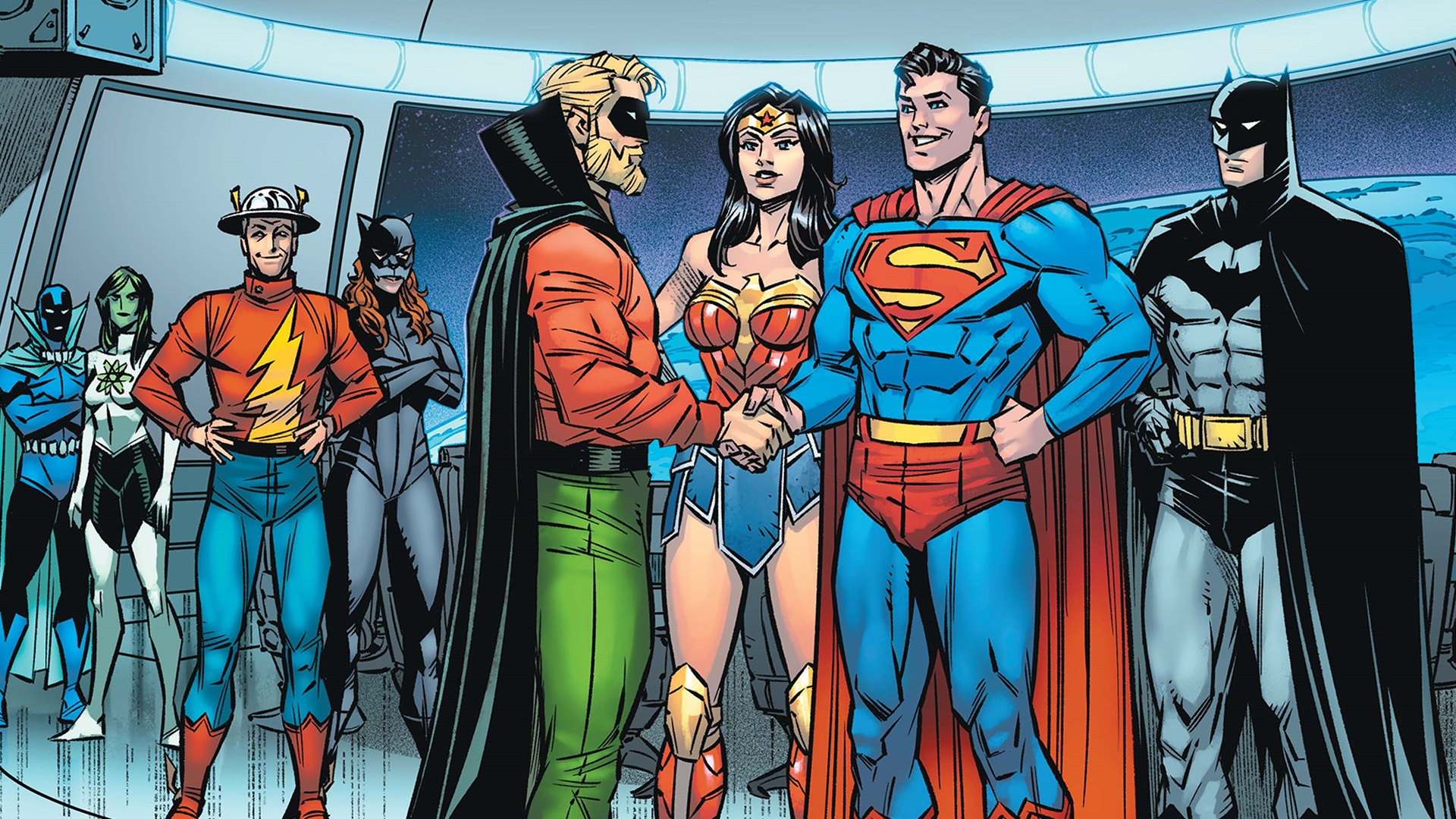
The Justice Society of America is the original superhero team, dating all the way back to the Golden Age of the '40s. Over the decades, they've come and gone from core DC Universe continuity, but with DC All-In, the team is back in the DCU and back in their own relaunched title that pits an expanded JSA against a new Injustice Society comprised of many of the team's worst enemies - including some surprise reveals yet to be seen by readers.
With the November 6 release of JSA #1 just weeks away, Newsarama spoke with writer Jeff Lemire who is teaming up with artist Diego Orlotegui and colorist Luis Guerrero for the new title. We dig into the new roster, which combines classic JSA members with their modern successors, the new Injustice Society, and why the JSA are the heart and soul of the DC Universe. And we'll even talk about the JSA's inevitable team up with the Justice League, which is also about to relaunch.
Newsarama: Jeff, thanks so much for talking with me today. I'm excited to talk about the JSA with you because you've said before that they're some of your favorite characters, that you grew up with them, and I also grew up with the JSA. I discovered All-Star Squadron as a kid and just fell in love with the characters.
Jeff Lemire: Yeah, same.
So on that note, what are your big touchstones for the JSA? What eras and ideas are you drawing on as your big influences?
Lemire: I'm trying to draw on everything, which is a lot. But one of the privileges of this gig is that you're getting to write these characters who are literally some of the first superheroes ever created. They go back to the '40s, but they have such a rich history in the modern era as well, like that Geoff Johns run from the early '00s is pretty iconic, and I was a huge fan of that.
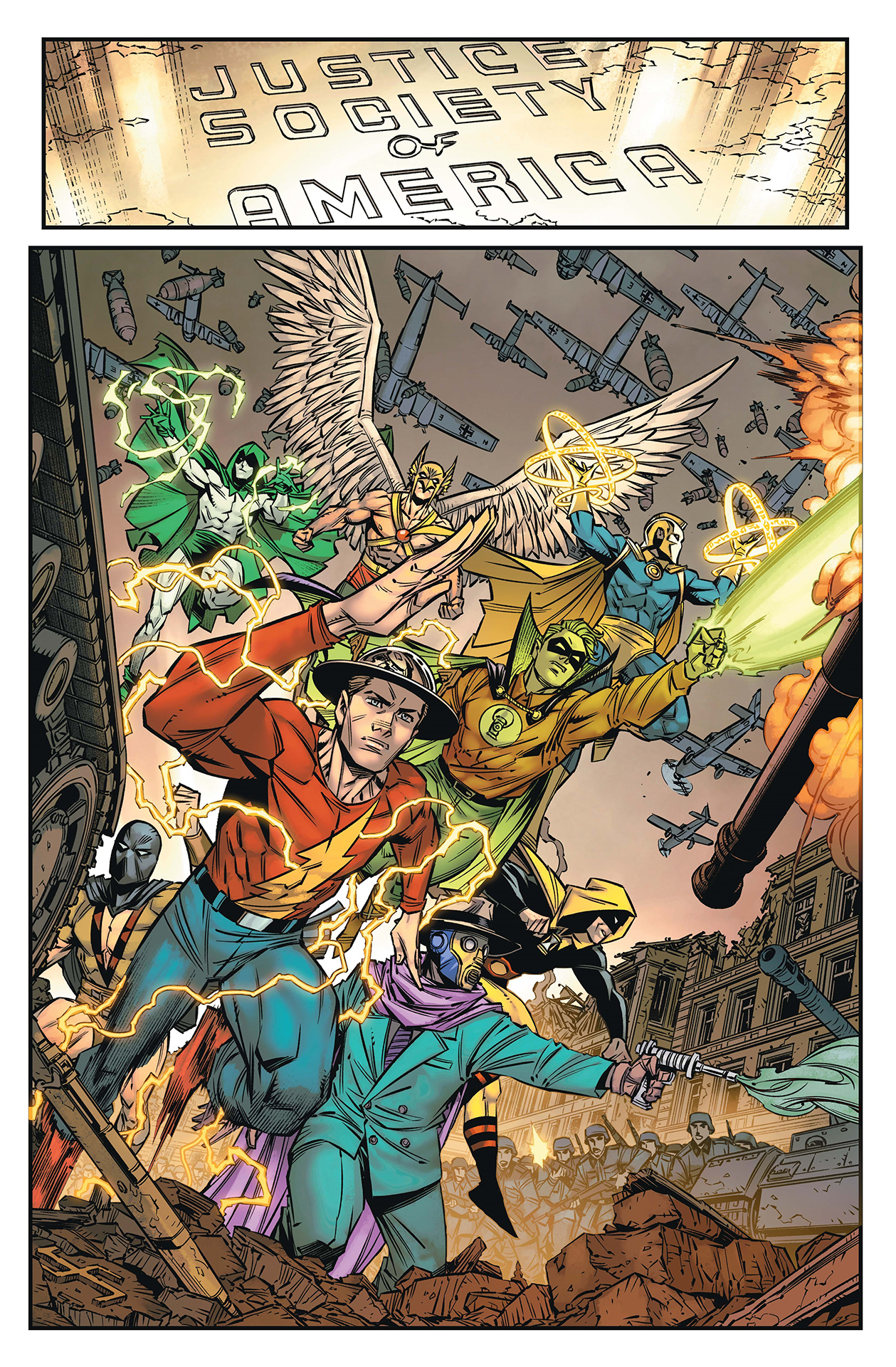
Then when I was a kid, like you, being a child of the '80s, All-Star Squadron was a real touchstone for me as well. It was just this cool monthly comic that had so many characters in it. As a kid, that was super cool. And I love the stuff from the '70s that Paul Levitz wrote. So I'm just trying to bring it all in, as much as I can, and really pay homage to this rich history and this giant cast of characters.
And if I do my job right, it should feel modern, but it should also feel like a classic Justice Society comic, like the stuff Geoff did in the '00s, the stuff with All-Star Squadron and Infinity Inc in the '80s. It's part of that lineage of books, it kind of fits right in with all of those.
This series is part of the core DC Universe after several years of the JSA existing in other continuities. What was the DC Universe lacking without the JSA, and what does having them back bring to current continuity?
Lemire: One of the things that made me fall in love with DC as a kid, was, back then it was called Earth-Two. It was different. But there was this sense of the universe being so big, and having multiple generations of the same heroes living together, working together, that, as a kid, gave me this sense of scope that made the universe so cool.
Then I think since the New 52 until pretty recently, I feel like that's something that's kinda been missing, you know? There hasn't been that same sense of legacy, of the generations and the history, which makes the DC Universe much less rich, I think. So I'm happy that it's back.
Not just because I'm obviously a fan of the characters, but because it's great to have that context and that history back, and to be able to see Golden Age characters like Jay Garrick and Alan Scott and Ted Grant working with modern superheroes like the new Doctor Fate, Khalid Nassour and Stargirl. It's just such a joy to write that and see it again.
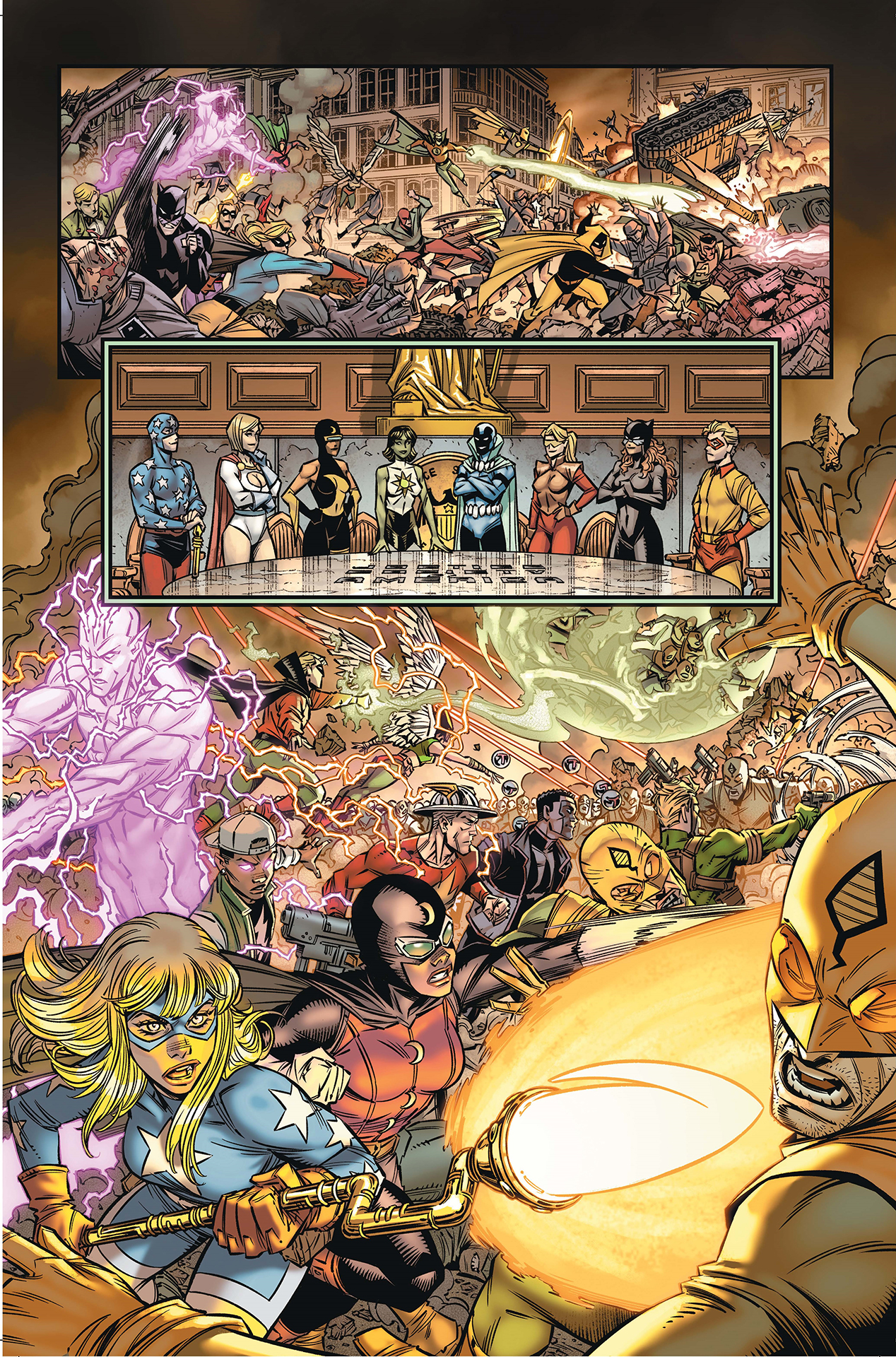
This series is picking up following the events of Absolute Power and its tie-ins. What do readers need to know going into the new JSA #1?
Lemire: They really don't need to know much because the first issue, I kind of deliberately throw readers right into the middle of an adventure already in progress. So you kind of have to hit the ground running with the team and get caught up with what's going on. Then in issue two, we take a breath, step back, and kind of give everything a bit more context.
When I was a kid growing up, I didn't have a comic shop around, so I couldn't always get every issue of every comic. So I'd pick up an issue, and it might already be in the middle of a storyline, but the fun part was trying to figure out, okay, what happened before, and who are these characters? And it kind of engages the reader in a cool way, so I almost wanted to replicate that feeling with my first issue, where we're just throwing you right in, and things have already happened that we haven't seen, off-panel.
But I think it's pretty new reader friendly in that you get a sense of who this team is, who the characters are, right away, and then you kind of learn what's happening to them at the same time they do. It should be pretty accessible, I hope.
You mentioned the cast, and there is a big, kind of sprawling cast here. There are almost two casts, between the elder generation and their successors. Who are the characters you've found yourself connecting with that has maybe surprised you?
Lemire: Yeah, I mean, there are some that really surprised me. Going into it, my favorites were always like, Alan, Jay, Ted, like the original Golden Age guys. And I always had a soft spot for our man Doctor Fate, so I knew I would love writing those characters.
The one character that surprised me the most, and pleasantly surprised me, is Beth Chapel, Doctor Mid-Nite. I love Doctor Mid-Nite, but I hadn't really read a lot of Beth Chapel stories, other than a few times here and there when she was in Infinity Inc.
I knew she would be on the team, but I didn't really see her as being as important as she's become to the storyline. But I just kind of fell in love with writing her as I was writing her. It just kind of grew and grew, and she's become really integral to the first 12-issue arc, and I can't wait to get back to writing her scenes. That's cool when that happens, you know?
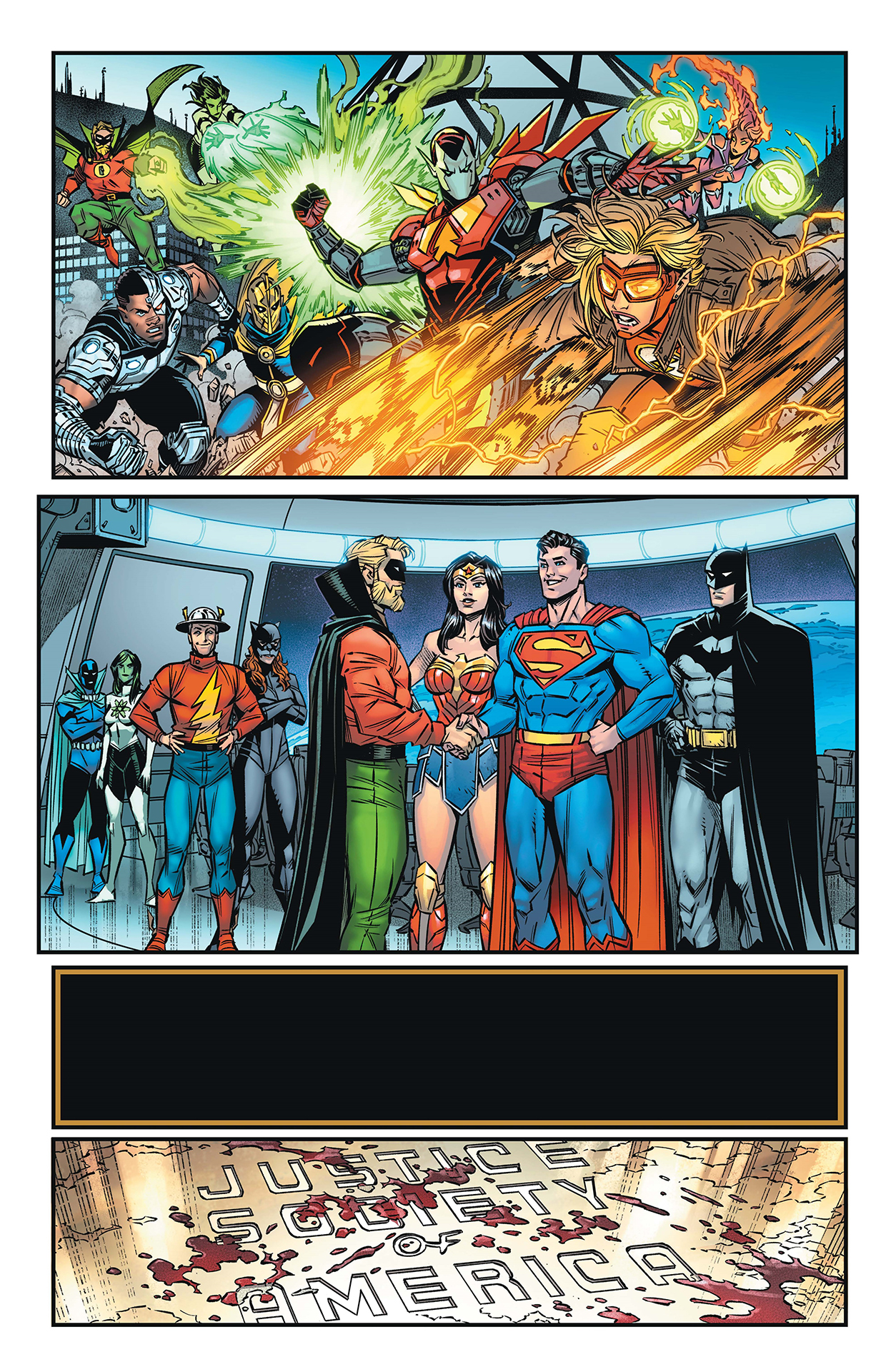
Your new JSA title is launching right around the same time that the Justice League is returning.
Lemire: Yep.
What do you see as the big differences, fundamentally, between the Justice Society and the Justice League, and what do you see as the strengths of having both of them together?
Lemire: Well I think, if you just want to boil it down as simple as you can get, I think the Justice League is a team, whereas the Justice Society is a family, you know? The Justice Society is multiple generations of heroes living and working together.
And their goal isn't just like, you know, to protect people or to go on missions. Their goal is really the sense of, like, mentorship and sort of teaching the younger generations, so it's a much different thing. And of course, they do go on adventures, but they sort of spin out of all these things.
For me, DC is always at its best when both the Justice Society and the Justice League are strong at the same time. And I know what Mark Waid is doing with Justice League Unlimited, and it's going to be very cool, and very different from what I'm doing. So I think there's definitely room for both teams, and I think that makes the DC Universe really rich.
Also, he and I have obviously talked about the inevitable Justice Society/Justice League team up, because again, that's such a DC touchstone from the past that if we didn't try to do something really cool together too, it would be sort of neglecting the readers, I think.
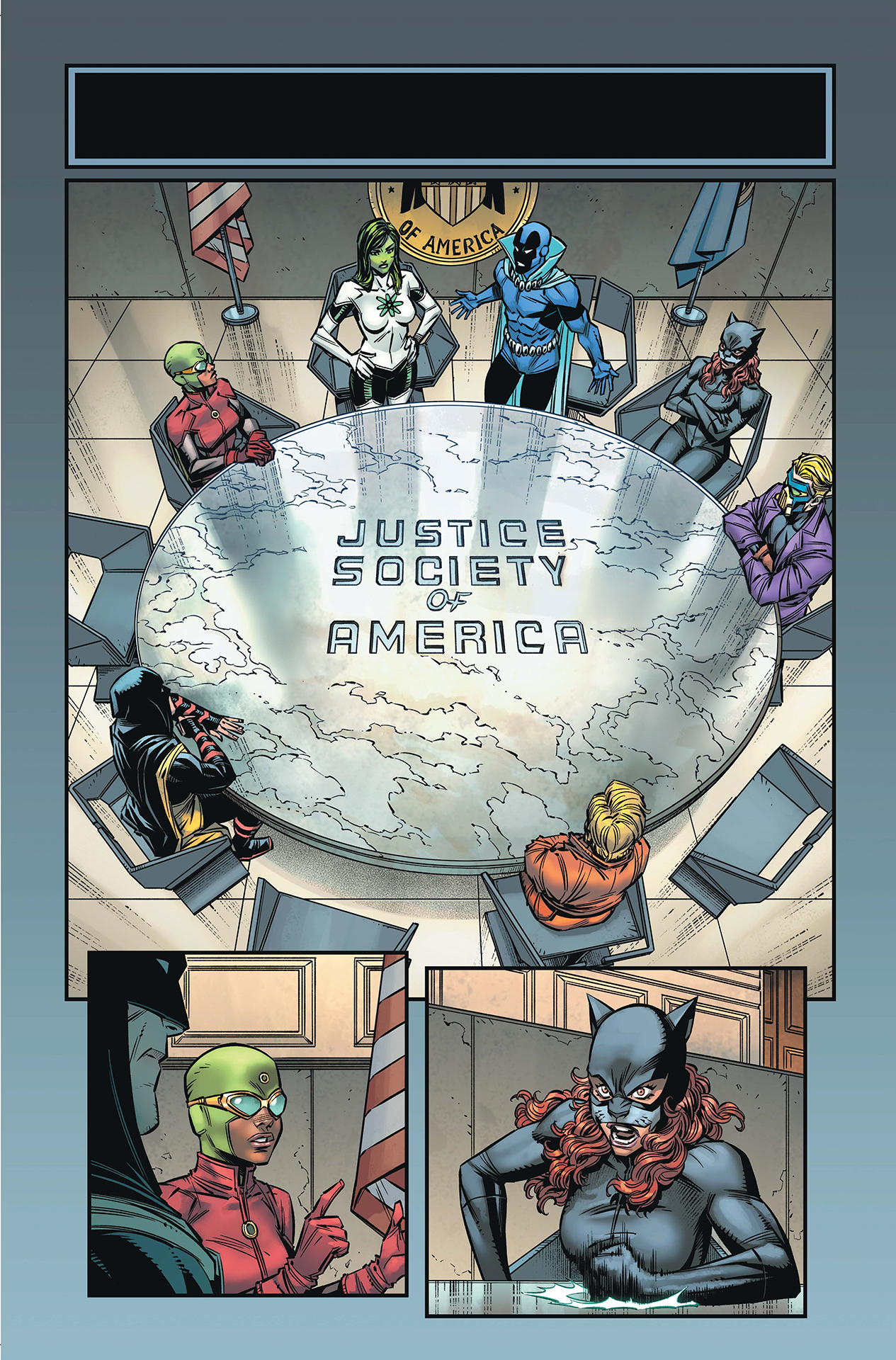
I want to talk about Diego Orlotegui and colorist Luis Guerrero, the art team, because the art has a really cool, energetic vibe. What's it been like working with them, and how has that relationship progressed as you've been working on JSA?
Lemire: It's been really cool. I didn't know Diego's work too well before I was approached to do JSA, and they showed me his recent Jay Garrick Flash limited series that he had just done, and I really liked it, so he was definitely at the top of our list.
I knew looking at the Jay Garrick stuff that he had a sort of energetic, kinetic way of laying out pages and of doing action, but what has surprised me the most now is that his ability to do the character work is really fantastic. It's very modern and very fresh, but you still get the sense of the history and heritage the characters carry with them.
Sometimes it's hard to keep the sense of these old school characters and their history while also keeping them feeling modern, but he's really done that. Not everyone can do the energetic action the way he does and also really deliver on the character side. So it's really allowed me to not hold back in my storytelling, knowing that he's going to be able to, you know, articulate everything I do in my scripts.
We've also got great variant covers by Cully Hamner, which is fun. He's also a big part of the creative team. He's awesome. I'm super excited, this a dream book for me, so it's been a real thrill.
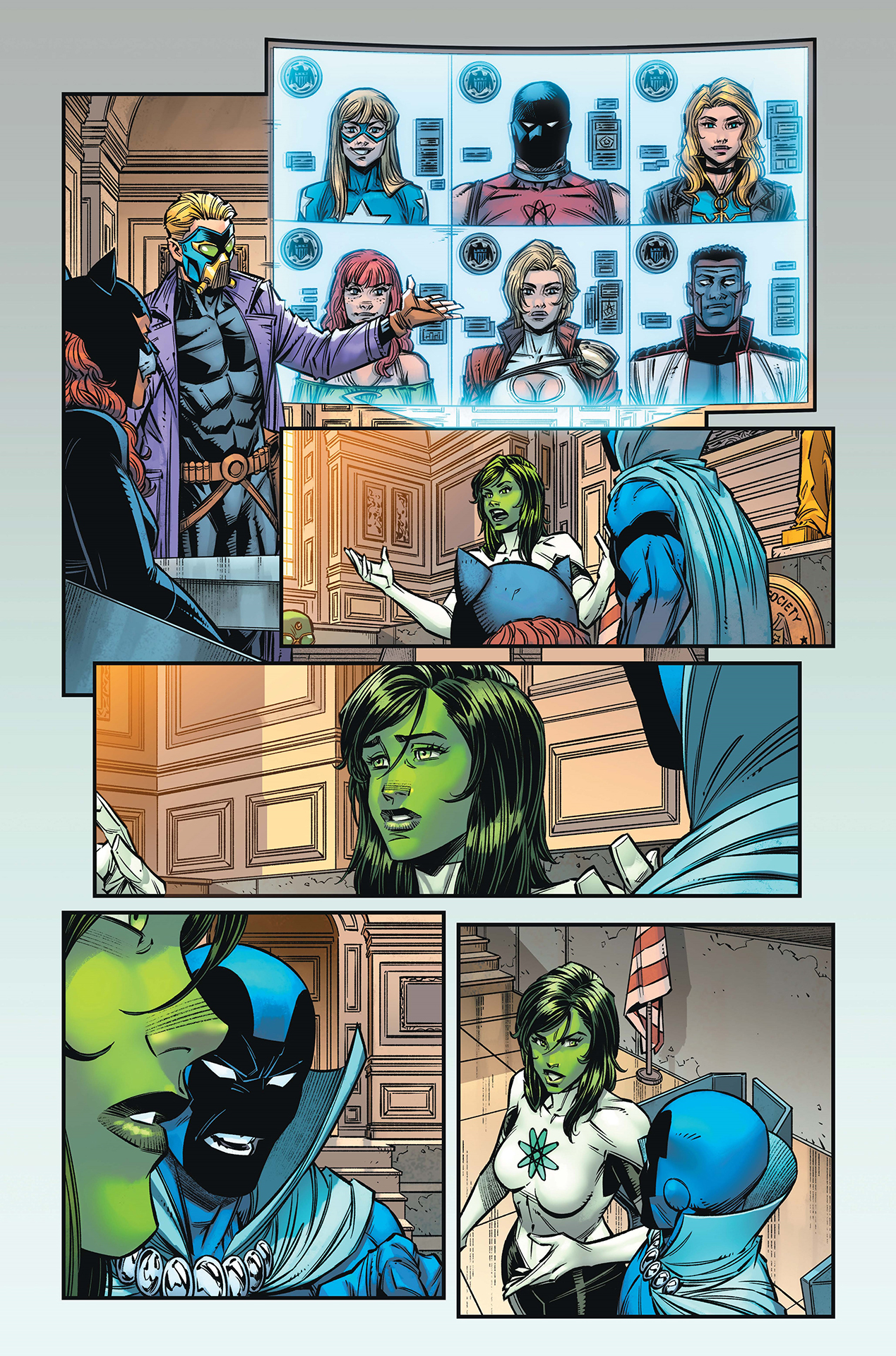
Going back to the characters, on the other side of the coin from the JSA is the new Injustice Society. And I won't spoil who it is, but you brought back one of my personal favorite villains…
Lemire: Oh, really?
Yeah, I loved the big reveal.
Lemire: Oh, I know who it is, yeah. We shouldn't talk about that. Yeah. We shouldn't say who it is.
Spoilers aside, what can you tell us about the new Injustice Society and how they fit into the title?
Lemire: It's pretty fun. Obviously, the cast was already massive, so why not throw in another massive super team? When you have a team as big and powerful as the JSA, you need something equally big and powerful to counter them, so it's been really fun putting the Injustice Society together.
I tried to balance characters we're used to seeing on the Injustice Society, like Solomon Grundy and Gentleman Ghost, but also putting in some of the newer generation as well, including some of the characters you're alluding to, who are favorites of mine as well.
I'm trying not to reveal anything, cause it's very mysterious, but yeah, the initial sort of plan that you see the Injustice Society enacting in the first few issues is sort of the surface level of something much bigger and much deeper that will play out across the first year, year-and-a-half of the book.
It's a pretty big, sprawling storyline which will have huge implications for the Justice Society and the rest of the DC Universe as well. It's really fun to make the JSA and the Injustice Society central to the DC Universe again.
Here's a gallery of covers for JSA #1, followed by more interview:
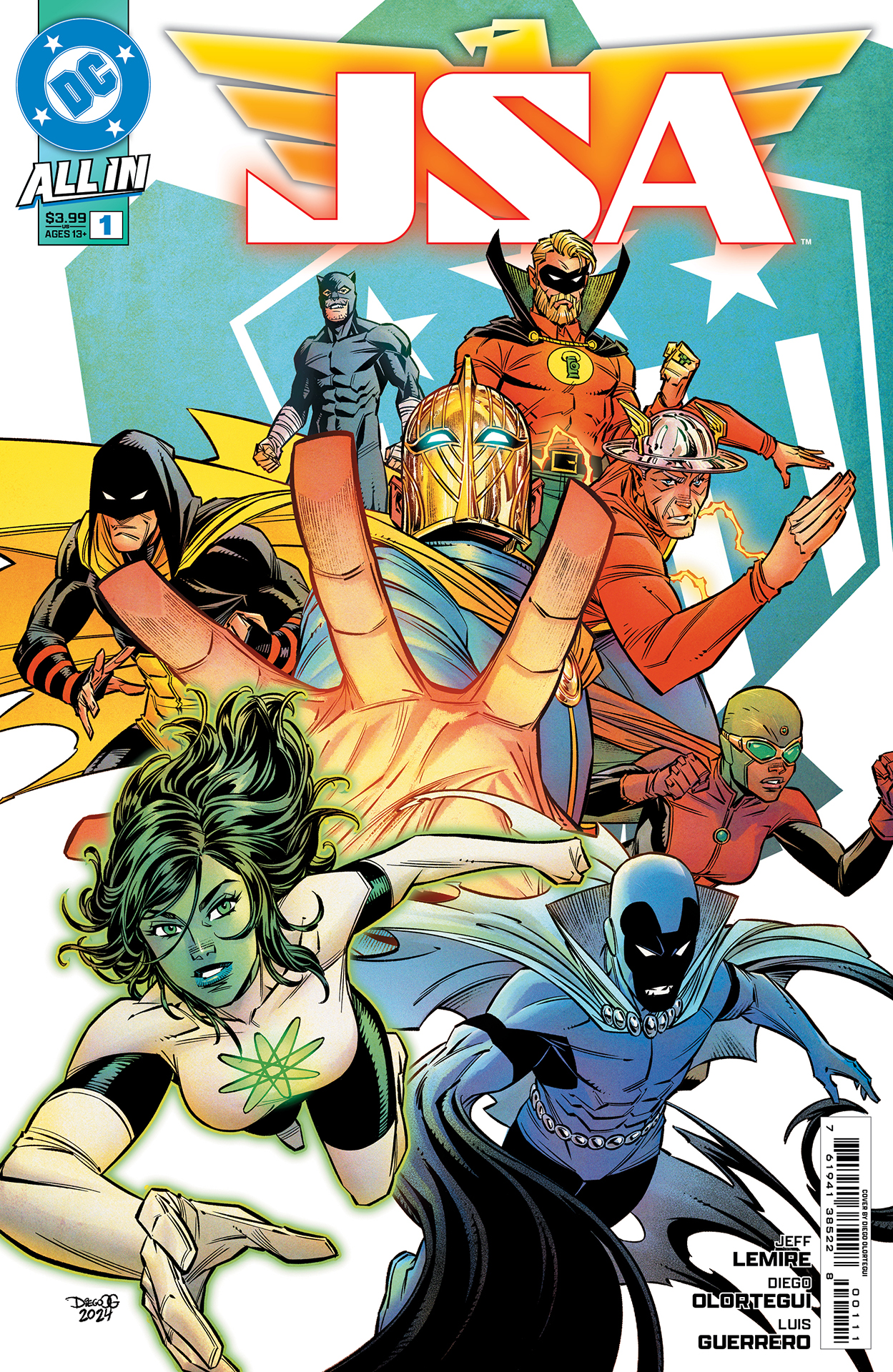
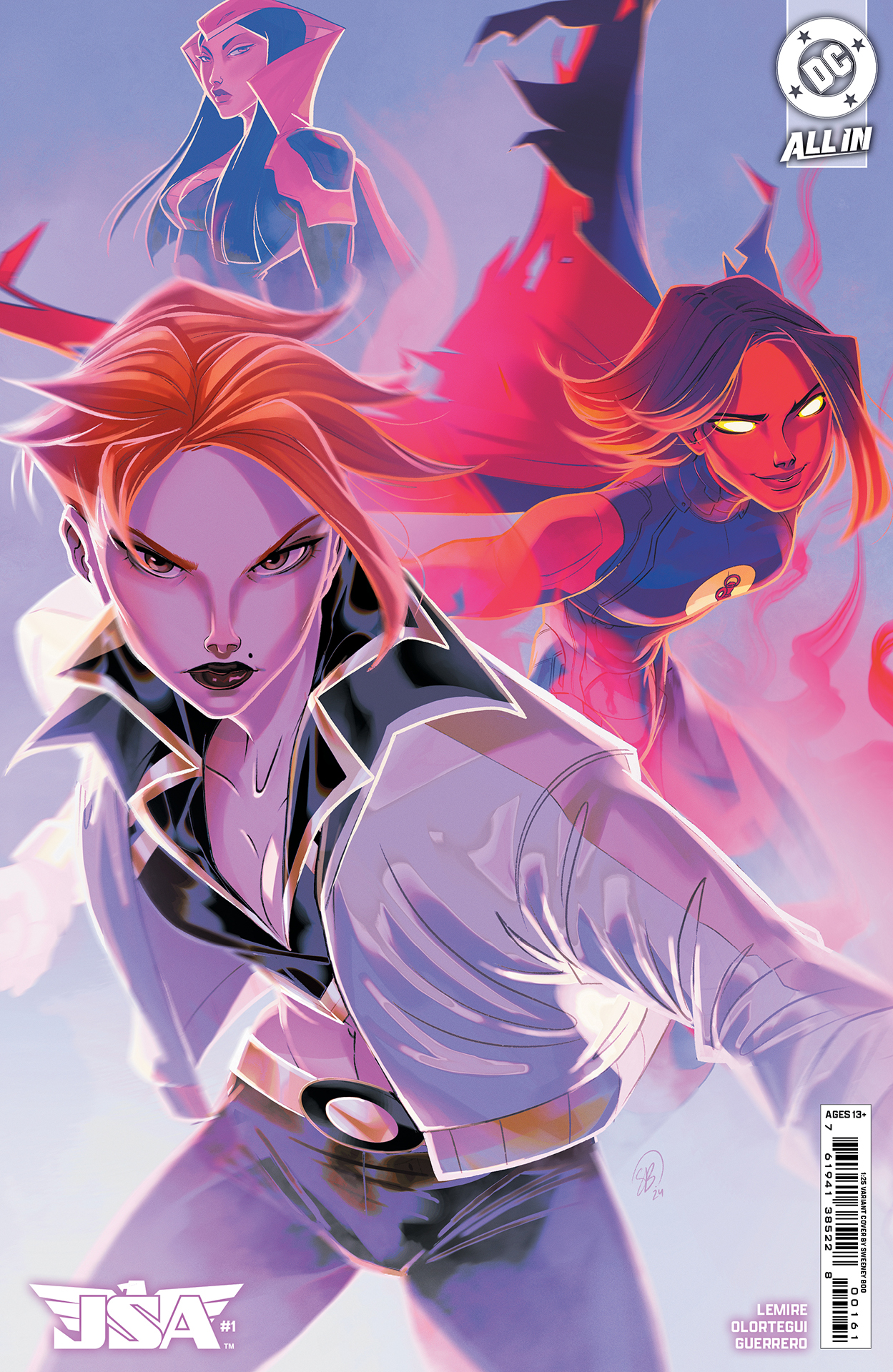
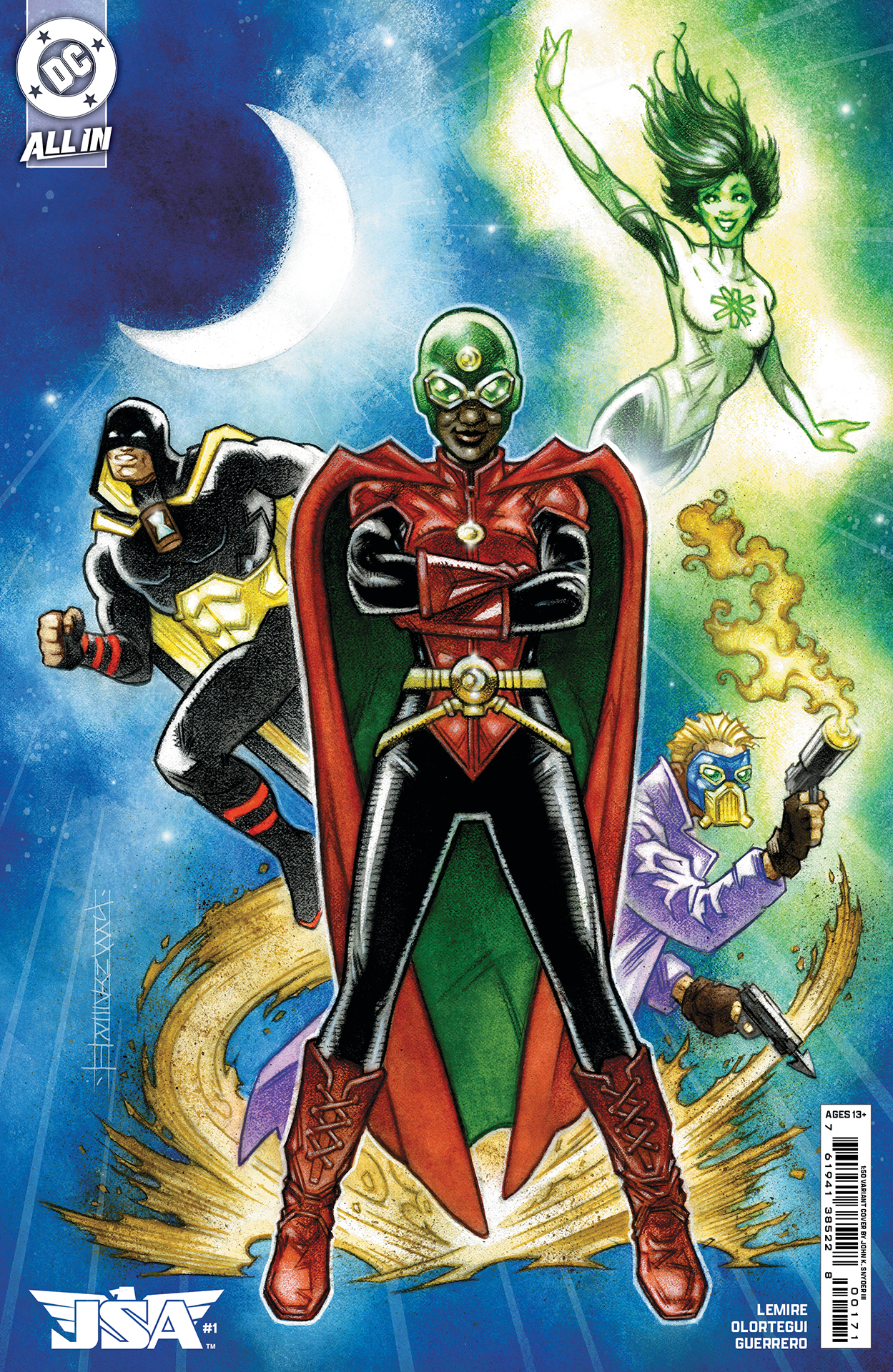
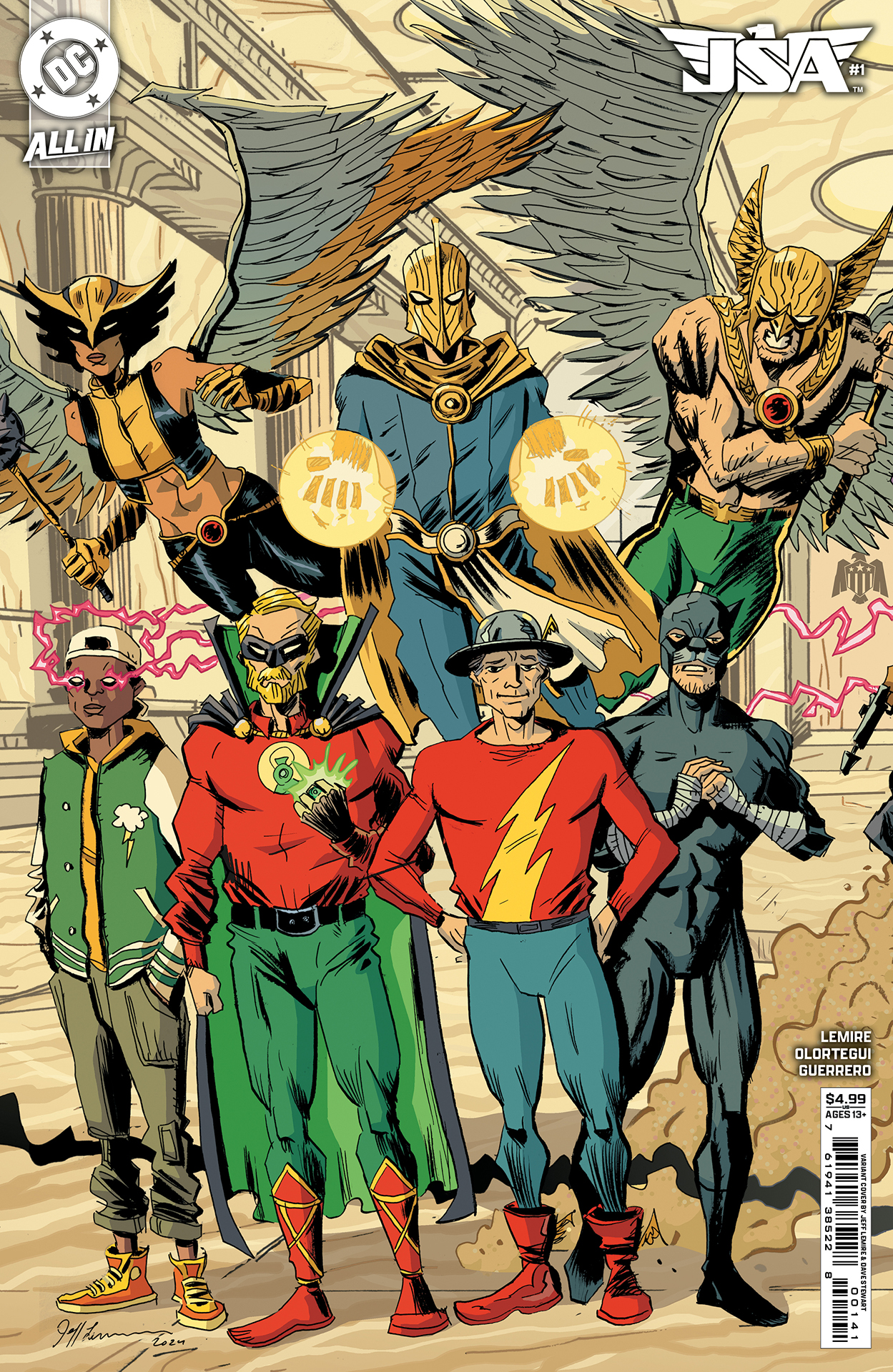
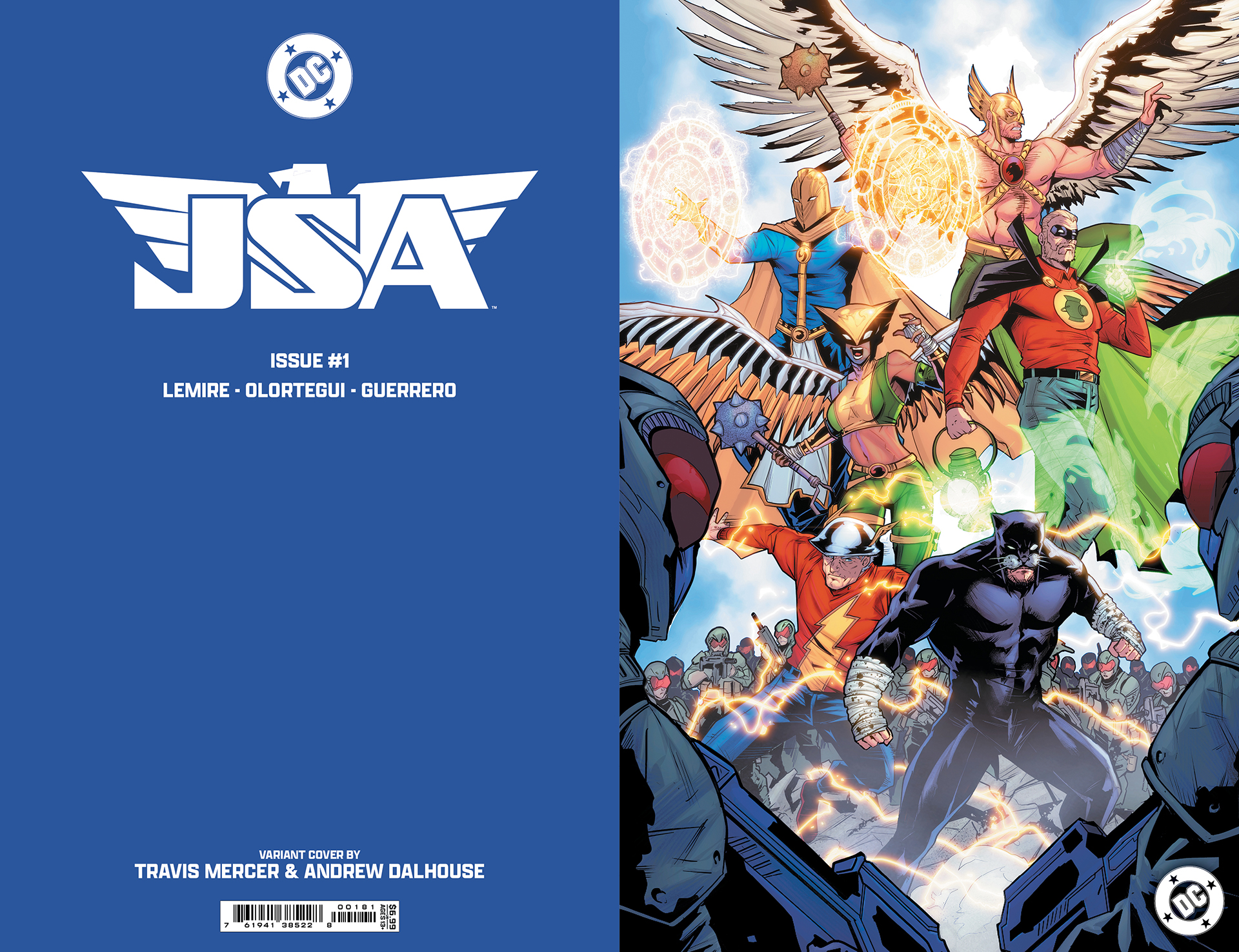
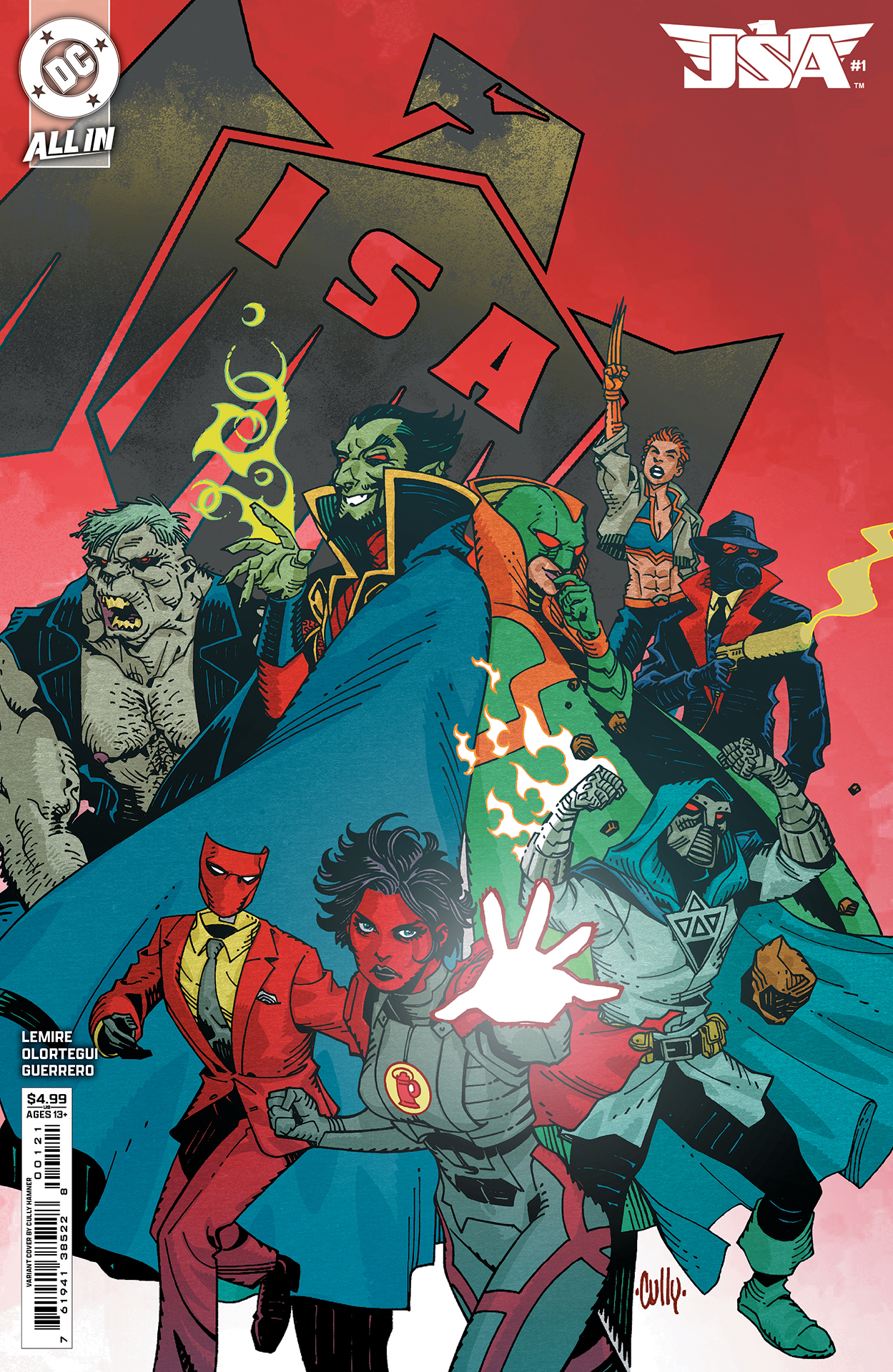
We've touched on this a little bit, but for my final question I want to ask you, what is it about the concept of legacy, and the legacy of the JSA in particular, that has made that concept kind of the backbone of the DC Universe? What's so special about this team that their absence changes the fabric of the DC Universe?
Jeff Lemire: Well, I think to me, they've always felt like the JSA are the heroes who should everyone else how to do it. The Justice League and the Titans and all these other superhero teams would not exist without them. They wouldn't have the same sense of values and morals that they have without the Justice Society coming first and showing them how to do it, you know?
And so there's this sense of the JSA sort of anchoring the whole DC Universe. They always held, for me, as this kind of moral center, almost keeping things stable, and, to me, just showing everyone else the right way to do things. Not in an obnoxious way - in the sense that they were sort of the greatest generation, and they accomplished so much.
You're just missing all that history and all that context without them. I think it's super important to keep that or else the DC Universe just sort of feels untethered.
DC All-In will bring new stories and new volumes of many popular DC titles with a focus on being new reader friendly.







